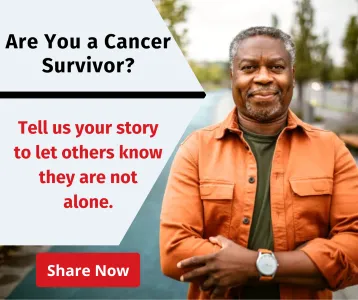Who is a Cancer Survivor?
The word “survivor” means different things to different people. The National Coalition for Cancer Survivorship defines a cancer survivor as someone who lives with, through and beyond cancer. Other definitions focus on the time from diagnosis through the rest of one’s life. Whether you use the word “survivor,” or prefer a word like “warrior,” the idea is the same. Being a survivor means taking an active, positive role in your own care.
There are more than 17 million cancer survivors in the United States. This number continues to grow as better ways to diagnose and treat cancer are discovered. This group has specific medical, physical, and emotional health needs — needs that, according to a 2006 report by the Institute of Medicine, are often not met.
10 Actions You Can Take to Improve Your Quality of Life
1. Make one decision at a time.
Try to focus only on today's problems. Avoid thinking about worst-case scenarios for the future. Taking one small step at a time can help you move forward and feel more in control.
2. Ask for support.
Be open with your family and friends about how you feel and how they can support you. Suggest ways they can help such as: driving you to appointments, going for a walk or simply listening when you want to talk.
3. Communicate with your health care team.
Stay in touch with your health care team. Let them know how you are feeling. If you have an appointment, write down questions in advance and, if possible, bring a friend or family member to listen and take notes. Ask questions if you don’t understand. If you do not feel comfortable with your doctor, look for a new one.
4. Retain as much control of your life as is reasonable.
Cancer can make it difficult for you to feel in charge of your life. As you recover, you can work on taking back some of the activities or decisions handled by others while you were in treatment.
5. Acknowledge and express your feelings.
Cancer can trigger many strong emotions. Take time to listen to yourself. Express your feelings through writing, talking, exercise or creative activities. Seek professional help or reach out to organizations like Cancer Support Community if feelings of sadness, lack of energy or worry interfere with your daily life.
6. Seek support from other cancer survivors.
Often, people find comfort when they talk with others who have had similar experiences. Ask your doctor, nurse or social worker for local cancer support groups. You can also contact the Cancer Support Community for ways to connect one-on-one, in groups or online with others.
7. Learn relaxation techniques.
Relaxation refers to a calm, controlled physical state that makes you feel better. Relaxation is something that you might have to learn, or build into your day, but it is important to do so. Listen to music, read a book or take a walk. Yoga, tai-chi, or meditation programs are also helpful. Take time to enjoy the moment.
8. Do what you enjoy.
Try to find humor in the unexpected moments of each day. Consider activities that you enjoy and can do comfortably. Spend time with people you enjoy, or alone, if it helps you feel better.
9. Make healthy lifestyle choices.
It's never too late to make changes to improve your well-being. Improving your diet, taking time to exercise, getting enough rest and maintaining intimacy are all ways of feeling better both physically and emotionally.
10. Maintain a spirit of hope.
Hope is desirable and reasonable. Even if your cancer journey is complicated, you can set small goals and enjoy daily pleasures. Your family, culture or spiritual beliefs may help you think about hope in a new way.

Next Steps Toward Survivorship
Survivorship requires many things - physical activity, nutrition, a healthy emotional life and management of any health concerns that may arise. You can improve your quality of life by addressing these factors together in an active way. The following resources may help you achieve the highest quality of life after treatment has ended.
- Cancer Transitions: Moving Beyond Treatment: This four-week Cancer Support Community program is designed to help you understand and take charge of your life after treatment in a way that promotes long-term health. It is offered at hospitals and clinics around the country.
- OncoLife Survivorship Care Plan from Penn Medicine (in English & Spanish): This website helps you and your health care team create a Survivorship Care Plan. Survivorship care plans focus on the need for people who have had cancer and their doctors to work as a team after active treatment comes to an end.
- LIVESTRONG Care Plan: Information on creating your own Survivorship care plan.
- Organize your medical records to keep track of everything. LIVESTRONG, Cancer.Net® and the Leukemia and Lymphoma Society offer advice on how to get started. Even if treatment is behind you, it is a good idea to keep a record of your medical treatment in case questions arise.